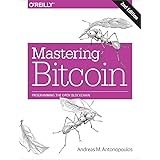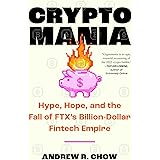Bitcoin Cash: A Fight for Decentralized Governance and the Future of BCH
The Bitcoin Cash network faces a critical challenge to its core identity. The accompanying video details this pivotal moment for Bitcoin Cash (BCH). Its community stands firm against a controversial Infrastructure Funding Plan (IFP).
This battle highlights fundamental principles of decentralization. It showcases the power of community consensus. Bitcoin Cash is making history with its actions.
Understanding the Infrastructure Funding Plan (IFP)
Bitcoin ABC, a key BCH development team, proposed the IFP. This plan sought to divert 8% of all newly mined Bitcoin Cash. These funds would go to a single address. The stated goal was infrastructure funding. However, many saw this as a forced tax. It was viewed as “blatant looting” by much of the community. This proposal sparked immediate widespread opposition.
Decentralized networks thrive on voluntary participation. Forced funding models contradict this spirit. The IFP threatened the very ethos of Bitcoin Cash. It challenged the concept of miner sovereignty. Miners typically choose their software. They decide which rules to follow. A mandatory rule change felt like a breach of trust.
Flipstarter: A Community-Driven Solution for Bitcoin Cash Funding
The initial IFP proposal did not succeed. Instead, it inspired a different solution. Investigations into voluntary funding alternatives began. Soon after, Flipstarter emerged. Flipstarter is an open-source crowdfunding tool. Anyone can use it for Bitcoin Cash projects. This platform operates on a unique principle. Funds are only released if the entire goal is met. Think of it like Kickstarter. No partial funding occurs. This mechanism ensures project viability. It protects donor contributions. It is a “Decentralized Assurance Contract.” This concept is a popular idea in game theory. It aligns incentives perfectly.
This model puts power back with the community. Projects must earn support directly. No central authority dictates funding. This represents a true decentralized approach. It fosters genuine community engagement. It proves that voluntary support can work.
A Trial by Fire: Funding Node Teams
The effectiveness of Flipstarter faced an immediate test. Five different full-node development teams launched simultaneous campaigns. Full-node teams are crucial. They maintain the blockchain’s integrity. They ensure network health. Bitcoin ABC, the IFP proponent, sought 1,000 BCH. Other teams also needed support. Bitcoin Cash Node (BCHN) aimed for 978 BCH. Bitcoin Verde targeted 241 BCH. BCHD needed 360 BCH. Knuth (formerly Bitprim) requested 460 BCH.
This concurrent crowdfunding demonstrated collective intent. BCHN led the way. They were the first to reach their goal. Verde, Knuth, and BCHD quickly followed suit. These successes proved a vital point. Voluntary contributions were viable. They could fund Bitcoin Cash infrastructure development. In stark contrast, Bitcoin ABC’s campaign failed. It did not reach its 1,000 BCH target. This outcome suggested declining community trust. It indicated that their services were no longer valued. Miners actively chose not to activate the IFP in May. Its only apparent support was accidental. There was no demand for this new rule. The community had spoken.
The IFP’s Return: A Mandate, Not a Proposal
Despite clear opposition, the IFP reappeared. On August 6th, Bitcoin ABC reintroduced it. This time, it was different. It came as a mandate. There was no room for discussion. This move bypassed traditional consensus mechanisms. It disregarded community feedback. This decision caused further concern. It intensified the debate. Many saw this as a centralizing maneuver. It threatened the network’s decentralized structure.
Such a decree challenges blockchain principles. Decentralization means no single point of control. It means no single group holds all power. Mandates undermine this fundamental idea. They risk alienating the user base. They can damage network cohesion. The community had to react decisively.
Chain Splits and Market Dynamics
A chain split became a real possibility. Whether this non-proposal activates depends on key players. Miners must choose to run the ABC software. They will only do so if it is profitable. Profitability hinges on several factors. Can they sell the mined coins? Will exchanges list the new coin? Will it retain the BCH ticker symbol? These are critical questions. User demand also plays a huge role. It creates a complex dynamic. Miners, exchanges, and users influence each other. This is a “bidirectional triangle of cause and effect.” It has perplexed crypto observers for years. It challenges the notion of single-group power.
The market has already reacted. Over 70% of Bitcoin Cash hash power signals BCHN. They oppose the IFP. Currently, 0% signals for the IFP. Major cryptocurrency exchanges offer futures markets. CoinEx, CoinFLEX, and Poloniex allow traders to take positions. Non-IFP futures trade around $230 USD. Bitcoin ABC IFP futures trade around $30 USD. These prices reflect market sentiment. They clearly indicate which chain the market favors. This provides a strong economic signal. It guides miners’ decisions. Exchanges look to these signals too. They want to list the dominant chain.
Bitcoin Cash: A Beacon of Decentralization
The Bitcoin Cash ecosystem has united. It actively rejects the Infrastructure Funding Plan. This moment is historic for cryptocurrency. No major blockchain project previously ousted an incumbent reference implementation. Bitcoin Cash is achieving this feat. It effectively “fires” Bitcoin ABC. This action strengthens its decentralized stance. Bitcoin Cash establishes itself as a beacon. It shines in a sea of centralized competitors. This network proves decentralized governance can work. It demonstrates community resilience. The future of Bitcoin Cash (BCH) is shaped by these actions. It validates the power of collective decision-making.







